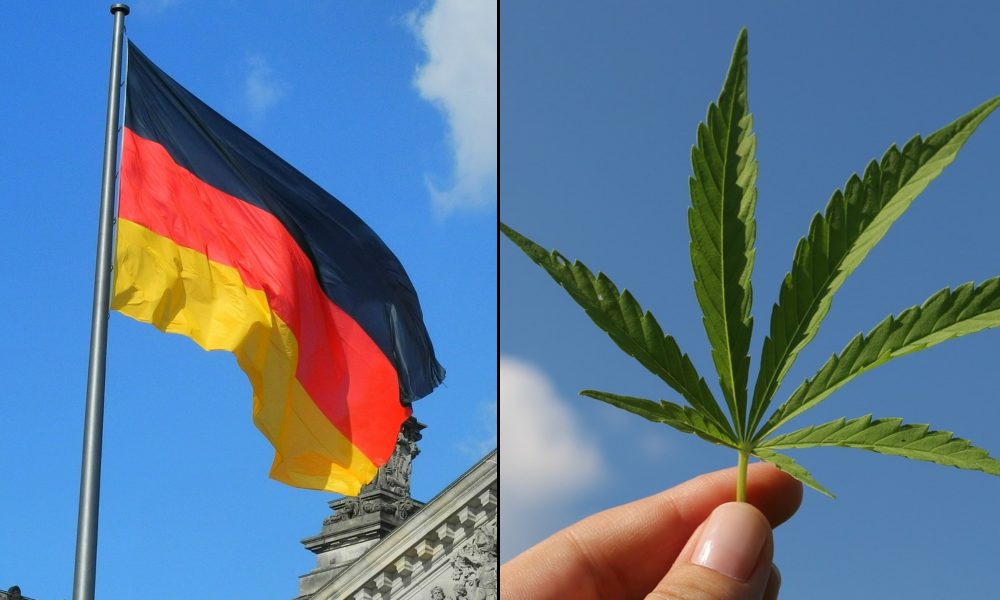A key committee in Germany’s Bundestag has approved a bill to legalize marijuana, setting the stage for floor consideration and final votes on Friday. But there are new questions about whether the law will actually take effect in April as planned.
The Health Committee, a central body of jurisdiction for the proposal, passed the legislation on Wednesday. It’s one of at least eight parliamentary panels that are set consider the bill on the same day before it advances to the floor.
The debate in the Health Committee apparently proved contentious. But in the end, members approved the measure with a series of previously agreed-upon changes.
“The next hurdle has been overcome!” Green MP Kirsten Kappert-Gonther, who chairs the committee but passed on the responsibility to oversee Wednesday’s meeting to a member of another party because she’s a main advocate of the bill, said.
Die nächste Hürde ist genommen!
Der Gesundheitsausschuss hat dem #CanG mit allen Änderungsanträgen zugestimmt.
Next Step: 2/3 Lesung am Freitag pic.twitter.com/Jq29y8DmAO— Kirsten Kappert-Gonther (@KirstenKappert) February 21, 2024
However, while a final floor vote is still expected Friday, the timeline for implementation is less certain.
When the bill goes to the Bundesrat, a separate body that represents individual German states, members may ultimately refer it to a mediation committee to sort out issues related to the measure’s criminal justice policy implications, Legal Tribune Online reported.
The legislation doesn’t require approval from the Bundesrat, which tried to block the proposed reform in September but ultimately failed. But it does have that mediation committee referral authority.
Health Minister Karl Lauterbach apparently rejected a proposal to extend the implementation timeline that could have avoided such a referral, so the current thinking is that discussions around the criminal justice components and timeline for legalization will be dealt with over the summer.
Die letzte formale Hürde ist genommen. Der Gesundheitsausschuss hat unsere Änderungsanträge und schließlich auch das #CanG angenommen! Damit können wir am Freitag die letzte Debatte im Plenum führen und final über das Gesetz abstimmen.
— Kristine Lütke MdB (@kristine_lutke) February 21, 2024
“The last formal hurdle has been overcome,” Kristine Lütke of the Free Democratic Party said, according to a translation. “This means we can have the last debate in the plenary session on Friday and finally vote on the law.”
Der Weg ins Plenum ist frei! #CanG
— Carmen Wegge (@CarmenWegge) February 21, 2024
The committee developments on Wednesday come weeks after leaders of Germany’s so-called traffic light coalition government announced that they’d reached a final agreement on the legalization bill, resolving outstanding concerns, primarily from the Social Democratic Party (SPD).
A final vote on the legalization bill that was initially planned in December was ultimately called off amid concerns from SPD leaders. Now it’s expected to reach the floor on Friday following committee consideration, with lawmakers taking up votes for second and third reading of the legislation for final passage.
Lawmakers had already delayed their first debate on the legislation, which was ultimately held in October, ostensibly due to the conflict in Israel and Palestine. They also pushed back a vote scheduled for November as supporters worked on improvements to the bill.
At a meeting in December, the health minister took questions from members, some of whom oppose legalization. At several points, he pushed back against lawmakers who suggested that legalization would send the wrong message to youth and lead to increased underage consumption, saying their arguments “misrepresented” the legislation.
Lawmakers had made a raft of adjustments to the bill, mostly designed to loosen restrictions that faced opposition from advocates and supporters in the Bundestag. They included increasing home possession maximums and removing the possibility of jail time for possessing slightly more than the allowable limit.
The legislators further agreed to stagger the implementation of the reform, making possession and home cultivation legal for adults beginning in April. Social clubs that could distribute marijuana to members would open in July.
Officials are eventually planning to introduce a complementary second measure that would establish pilot programs for commercial sales in cities throughout the country. That legislation is expected to be unveiled after its submitted to the European Commission for review.
The health minister responded to early criticism of the bill from medical and law enforcement groups by emphasizing that the reform would be coupled with a “major campaign” to educate the public about the risks of using cannabis.
While Germany’s Federal Cabinet approved the initial framework for a legalization measure in late 2022, the government also said it wanted to get signoff from the EU to ensure that enacting the reform wouldn’t put them in violation of their international obligations.
The framework was the product of months of review and negotiations within the German administration and the traffic light coalition government. Officials took a first step toward legalization in 2022, kicking off a series of hearings meant to help inform legislation to end prohibition in the country.
Government officials from multiple countries, including the U.S., also met in Germany last November to discuss international marijuana policy issues as the host nation works to enact legalization.
A group of German lawmakers, as well as Narcotics Drugs Commissioner Burkhard Blienert, separately visited the U.S. and toured California cannabis businesses in 2022 to inform their country’s approach to legalization.
The visit came after top officials from Germany, Luxembourg, Malta and the Netherlands held a first-of-its-kind meeting to discuss plans and challenges associated with recreational marijuana legalization.
Leaders of the coalition government said in 2021 that they had reached an agreement to end cannabis prohibition and enact regulations for a legal industry, and they first previewed certain details of that plan last year.
A novel international survey that was released last year found majority support for legalization in several key European countries, including Germany.
Justice Department Researcher Says ‘We May Need Better Tests’ For Marijuana Impairment, Questioning ‘Per Se’ THC Limits For Driving
Read the full article here









